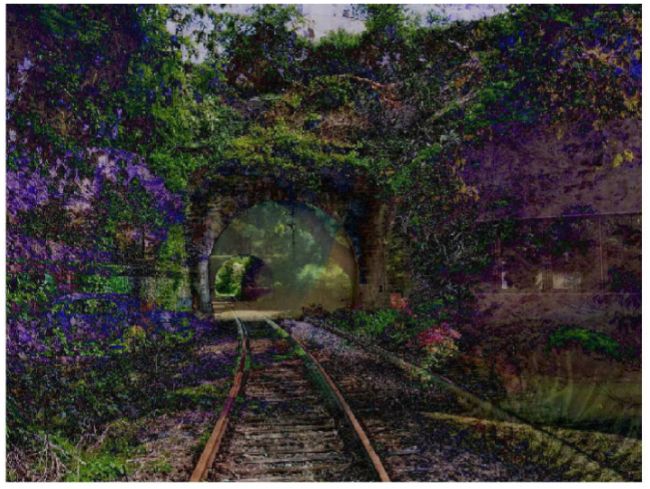- within Transport and International Law topic(s)
A Federal Court ruled that works that are entirely created by artificial intelligence ("AI") systems cannot receive a copyright under United States law. Contrary to how this decision has been reported in news summaries, the case was decided on a relatively narrow issue, and kept the door open for future decisions to expand on this new area of the law.
The plaintiff used an AI system called the "Creativity Machine" to generate a piece of visual art called "A Recent Entrance to Paradise" (reproduced below):

The plaintiff claimed that the work had been "autonomously created by a computer algorithm running on a machine," and attempted to register the work with the Copyright Office. The Copyright Office denied the application on the ground that copyright law only extends to works created by human beings.
Judge Beryl A. Howell of the District Court for the District of Columbia held that the Copyright Office's denial of the application was correct because "human authorship is an essential part of a valid copyright claim." The Court continued:
Copyright is designed to adapt with the times. Underlying that adaptability, however, has been a consistent understanding that human creativity is the sine qua non at the core of copyrightability, even as that human creativity is channeled through new tools or into new media . . . Human involvement in, and ultimate creative control over, the work at issue was key to the conclusion that the new type of work fell within the bounds of copyright. Copyright has never stretched so far, however, as to protect works generated by new forms of technology operating absent any guiding human hand, as plaintiff urges here. Human authorship is a bedrock requirement of copyright. The act of human creation—and how to best encourage human individuals to engage in that creation, and thereby promote science and the useful arts—was thus central to American copyright from its very inception. Non-human actors need no incentivization with the promise of exclusive rights under United States law, and copyright was therefore not designed to reach them.
The Court, however, noted that the issue it was deciding was narrow: "the single legal question presented here is whether a work generated autonomously by a computer falls under the protection of copyright law upon its creation,"—i.e., the Court was deciding what should happen when there is no human role at all, when the AI ostensibly made the work "autonomously." The plaintiff claimed that his use of the AI through prompting gave it a certain level of human involvement, but as these claims were outside the record, the Court did not consider them: "this case presents only the question of whether a work generated autonomously by a computer system is eligible for copyright. In the absence of any human involvement in the creation of the work, the clear and straightforward answer is the one given by the Register: No."
Therefore, the Court observed that future cases may not be as simple:
Undoubtedly, we are approaching new frontiers in copyright as artists put AI in their toolbox to be used in the generation of new visual and other artistic works. The increased attenuation of human creativity from the actual generation of the final work will prompt challenging questions regarding how much human input is necessary to qualify the user of an AI system as an "author" of a generated work, the scope of the protection obtained over the resultant image, how to assess the originality of AI-generated works where the systems may have been trained on unknown pre-existing works, how copyright might best be used to incentivize creative works involving AI, and more.
Thus, questions about what ratio of human-to-AI involvement (such as the level of tinkering or prompting an AI system) is necessary for the AI-generated work to have a sufficient level of human authorship to sustain a valid copyright claim are left for another day.
AUGUST 21, 2023
The content of this article is intended to provide a general guide to the subject matter. Specialist advice should be sought about your specific circumstances.


